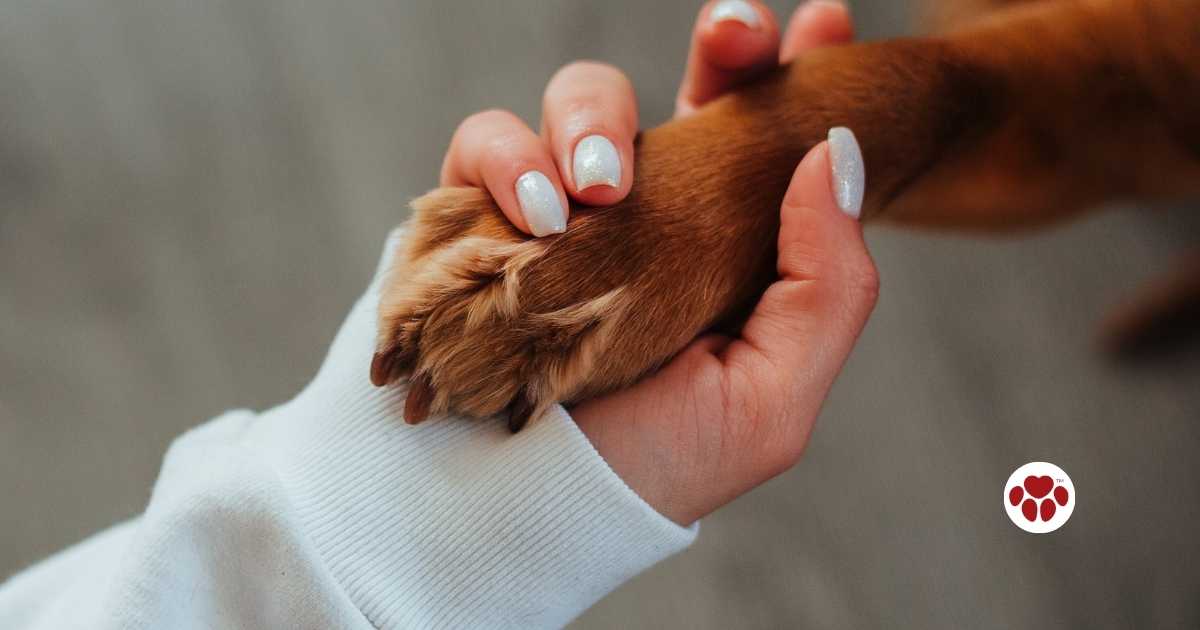
Why Do Dogs Lick Their Paws And Veterinarian Tips to Put an End to It
|
|
Time to read 6 min
|
|
Time to read 6 min
In this article, we'll unravel the following:
While occasional paw licking is normal for dogs, excessive and persistent licking can indicate an underlying issue. It could be a sign of allergies, skin irritations, or even psychological distress.
By understanding the reasons behind this behavior, you'll be better equipped to address the problem and ensure your furry friend's well-being. In order to address the issue, it's important to determine the cause first. Here, we will share insights on the common triggers for paw licking and provide practical advice on how to alleviate the problem.
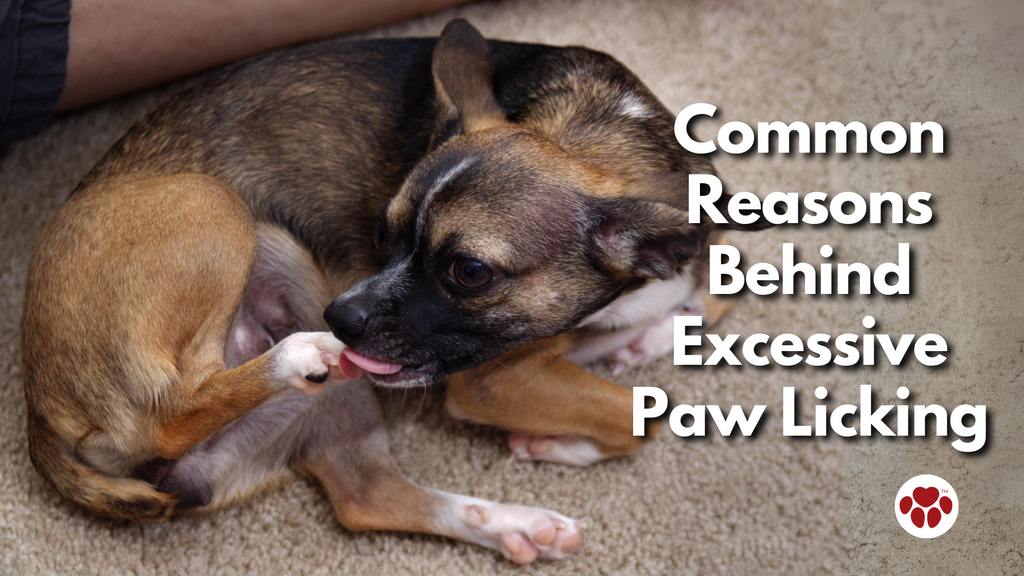
Dogs use their paws to explore the world around them, so it's natural for them to lick their paws from time to time. However, when this behavior becomes excessive, it's important to investigate the underlying causes (Jones, 2021). There are several common reasons why dogs lick their paws excessively:
One of the most common reasons for excessive paw licking in dogs is allergies. Just like humans, dogs can develop allergies to certain substances in their environment, such as pollen, dust mites, or certain ingredients in their food. Read "Dogs' Allergy Alleviation: CBD Oil's Soothing Effects".
These allergies can manifest as itchy skin and cause dogs to lick their paws to find relief. To determine if allergies are the cause of your dog's paw licking, it's important to observe if they exhibit any other symptoms, such as sneezing, coughing, or watery eyes.
Infections and skin conditions can also be a culprit behind excessive paw licking in dogs. Bacterial or fungal infections can cause itching and discomfort, leading dogs to constantly lick their paws. Additionally, conditions like dermatitis or hot spots can also trigger this behavior.
Sometimes, dogs may lick their paws excessively as a response to pain or discomfort. It could be due to an injury, a foreign object stuck between their toes, or even a problem with their joints or nails. Read "Understanding Hemp For Dogs".
Dogs are known to lick their paws as a way to self-soothe and relieve pain. If you suspect that your dog's paw licking is due to pain or discomfort, it's crucial to carefully examine their paws for any signs of injury or issues. Refer to "How CBD Oil Helps Your Dog With Joint Pains".
In some cases, excessive paw licking in dogs can be a result of behavioral issues, boredom, or anxiety. Dogs may resort to licking their paws as a way to cope with stress or boredom, especially when they lack mental and physical stimulation. If you suspect that your dog's paw licking is related to behavioral issues, it's important to address the underlying cause. Read "New Research Reveals: Anxious Dogs Have Different Brains".
Providing your dog with plenty of physical exercise, mental stimulation, and interactive toys can help alleviate boredom and anxiety. Additionally, behavioral training and positive reinforcement techniques can also be beneficial in redirecting your dog's attention away from paw licking.
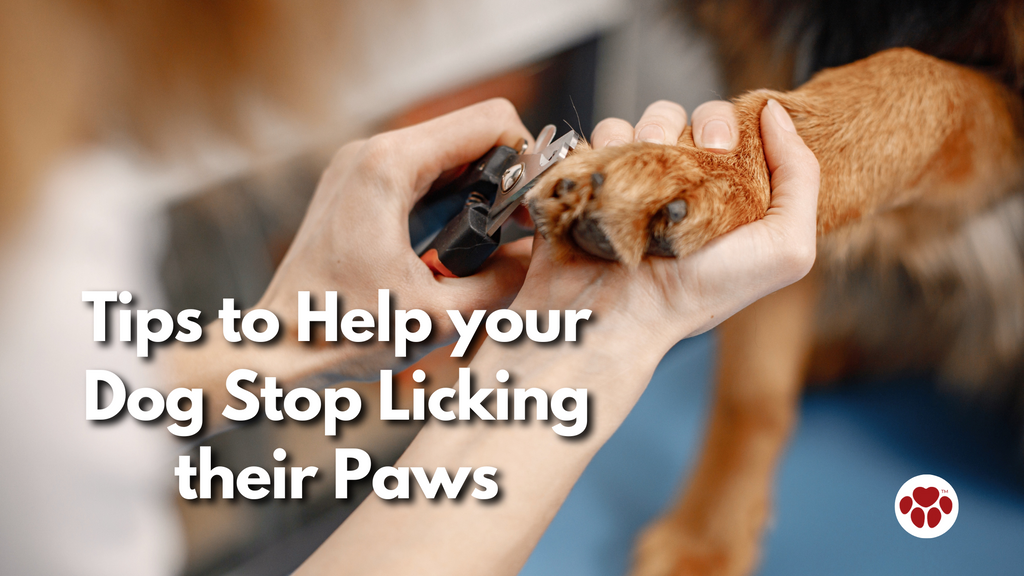
Now that we've explored the common reasons behind excessive paw licking in dogs, let's dive into some practical tips to help your furry friend find relief and put an end to this behavior:
Remember, every dog is unique, and what works for one may not always work for another. It's important to be patient and consistent in your efforts to help your dog overcome excessive paw licking.
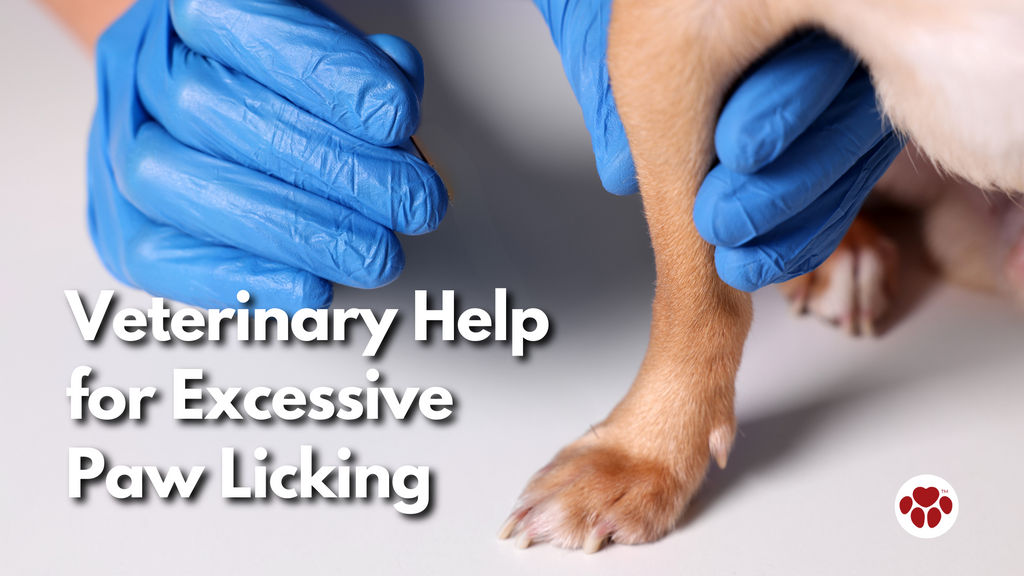
While occasional paw licking is normal, persistent and excessive licking should be addressed. If your dog's paw licking is interfering with their daily activities, causing discomfort, or if you notice redness, swelling, or any signs of infection or injury, it's crucial to seek veterinary assistance.
Your veterinarian will be able to conduct a thorough examination, identify the underlying cause, and recommend appropriate treatment options based on your dog's specific needs. Remember, early intervention is key to preventing further complications and ensuring your dog's well-being.
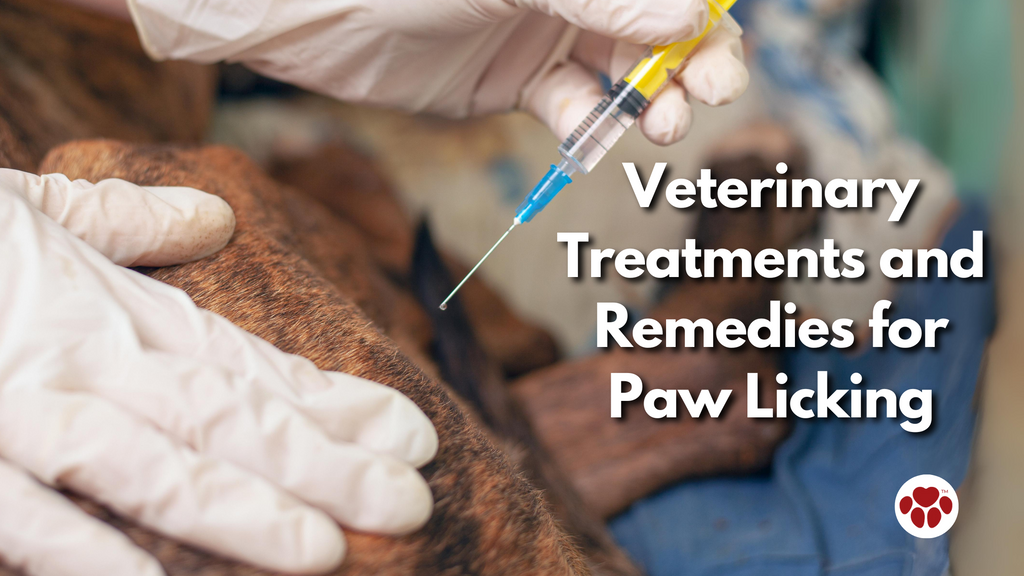
In some cases, veterinary intervention may be necessary to address the underlying cause of your dog's excessive paw licking. Depending on the diagnosis, your veterinarian may recommend the following treatments or remedies:
Always follow your veterinarian's advice and treatment plan to ensure the best possible outcome for your dog.
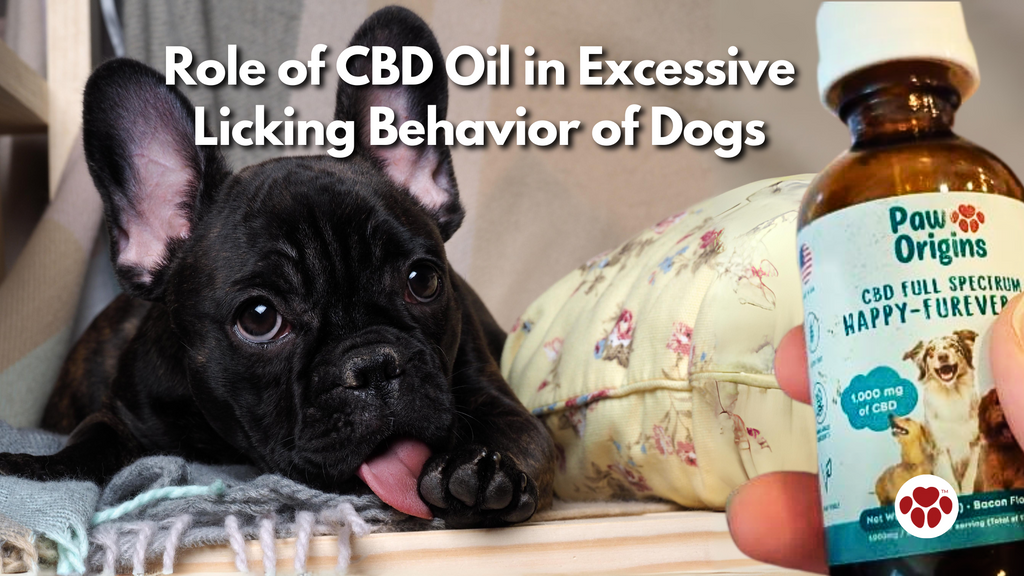
CBD Oil may help lessen the unwanted excessive licking behavior in dogs by targeting the cause. The study of Marsella, et al (2019) concluded that topical endocannabinoid product minimized allergic flares and pruritus in a canine model of atopic dermatitis.
While the study did not focus on the licking behavior, it can be inferred that by addressing skin problems that trigger the bad behavior, CBD has the potential to help reduce dog’s excessive licking. Moreover, the study of Morris et al (2020) suggests that CBD oil tended to reduce scratching in dogs, but did not negatively impact daily activity levels or activity duration.
While there is anecdotal evidence and some preliminary research suggesting that CBD oil may help address certain issues related to anxiety and stress in dogs, its specific role in managing excessive licking behavior is not yet fully understood, and more research is needed.
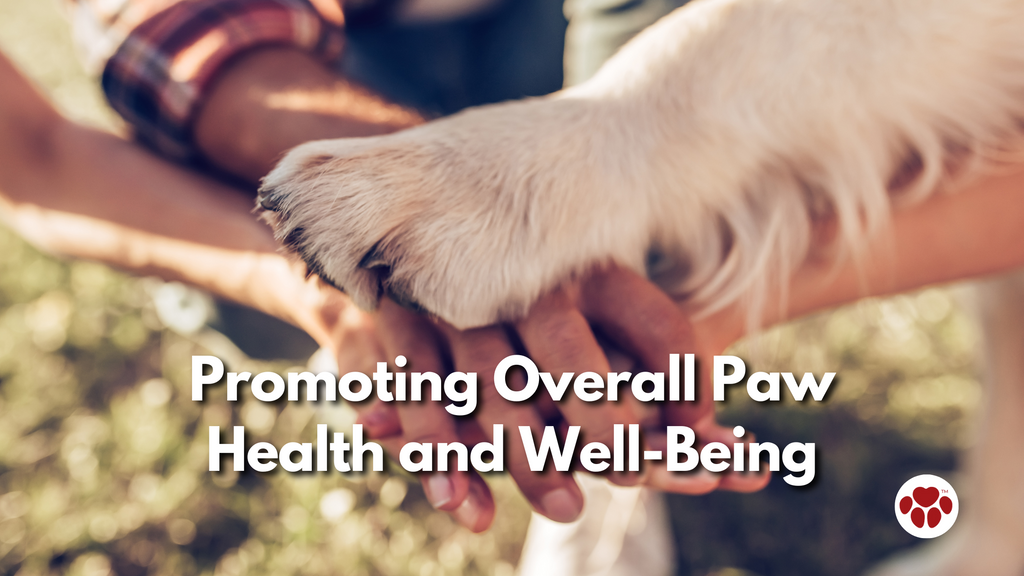
Excessive paw licking in dogs can be a frustrating and concerning issue for pet owners. However, by understanding the common reasons behind this behavior and implementing the tips and advice provided by veterinarians, you can help your furry friend find relief and promote their overall paw health and well-being.
Remember, each dog is unique, and it may take time and patience to identify and address the underlying cause of excessive paw licking. By working closely with your veterinarian and providing the necessary care and attention, you can help your dog live a happy, healthy, and excessive lick-free life.
So, the next time you find your dog licking their paws, don't fret. Instead, take action and be proactive in addressing the issue. Your dog will thank you for it.